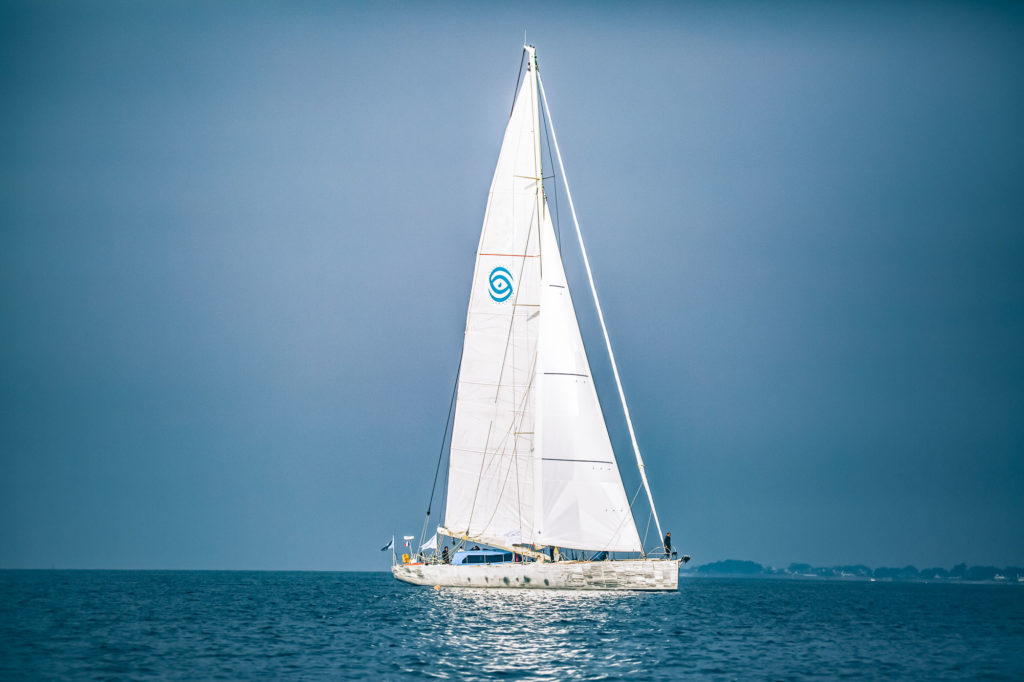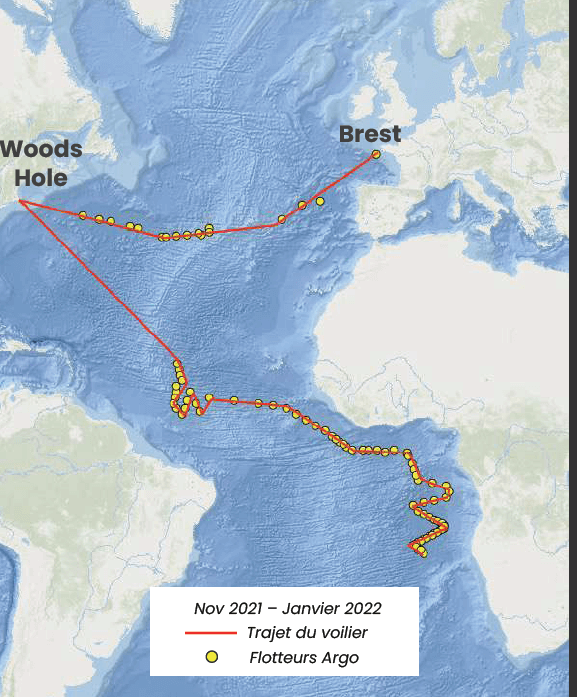
A first! Coordinated by OceanOPS* (international center of the World Meterorological Organization and the Intergovernmental Oceanographic Commission of UNESCO), the French sailing vessel of Blue Observer will deploy approximately one hundred Argo profiling floats for the United States, Canada, and Europe (France, Germany, and the Netherlands for the current mission).
These launches will aid in maintaining an optimal distribution of existing floats in the Atlantic. This unprecedented mission is financed by the NOAA (National Oceanic and Atmospheric Administration) and its partner, the Woods Hole Oceanographic Institution, through the Canadian Argo program and the euro-Argo research infrastructure. From Ifremer (Institut français de recherche pour l’exploitation de la mer) in Brest, the latter coordinates 12 European countries’ contributions to the Argo program, whose objective is to maintain 25% of the Argo float network. The unberthing is planned for the 2nd of November in Brest. The mission is expected to last 3 months – approximately 99 days at sea. The crew cill make a transatlantic voyage to Woods Hole, Massachusetts, where thet cill load 80 additional floats before continuing their journey via the south Atlantic towards Saint Helena Island, off the coast of Namibia – all by sail!
* OceanOPS: Surveillance – worldwide ocean observation systel, based in Brest.
"It is an innovative, low-carbon operational response to the constraints imposed by the global pandemic and the difficulties of maintaining the usual academic research campaigns".
Oceanography and science commit to decarbonization
The mixed, multi skilled crew consists of experienced sailors and scientists. Two missions are planned for this first expedition
Deployment of 100 floats to predefined GPS locations. The objective is to replace end-of-life floats in the Argo network, as well as to deploy floats in new areas to expand the Argo grid.
Data taken from Argo floats have two main functions:
Provide essential data for studies on the properties of bodies of water, oceanic variability, and climate variations.
Provide essential data to build weather prediction models.
